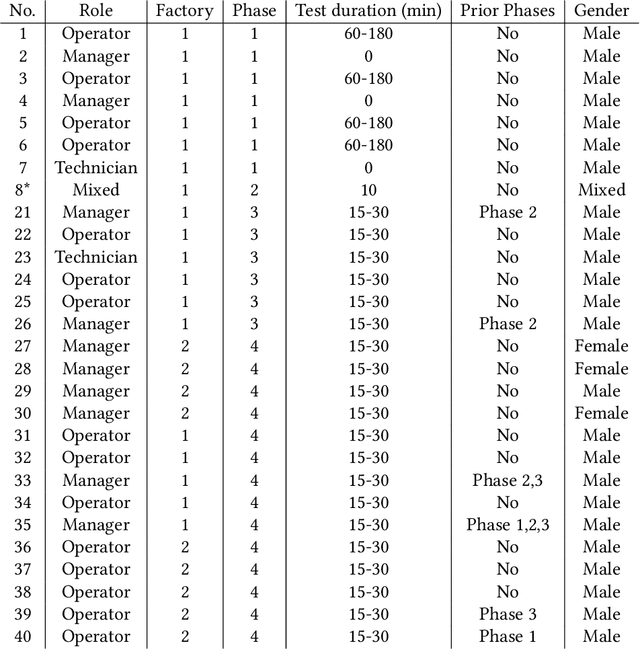Factory Operators' Perspectives on Cognitive Assistants for Knowledge Sharing: Challenges, Risks, and Impact on Work
Paper and Code
Sep 30, 2024



In the shift towards human-centered manufacturing, our two-year longitudinal study investigates the real-world impact of deploying Cognitive Assistants (CAs) in factories. The CAs were designed to facilitate knowledge sharing among factory operators. Our investigation focused on smartphone-based voice assistants and LLM-powered chatbots, examining their usability and utility in a real-world factory setting. Based on the qualitative feedback we collected during the deployments of CAs at the factories, we conducted a thematic analysis to investigate the perceptions, challenges, and overall impact on workflow and knowledge sharing. Our results indicate that while CAs have the potential to significantly improve efficiency through knowledge sharing and quicker resolution of production issues, they also introduce concerns around workplace surveillance, the types of knowledge that can be shared, and shortcomings compared to human-to-human knowledge sharing. Additionally, our findings stress the importance of addressing privacy, knowledge contribution burdens, and tensions between factory operators and their managers.
 Add to Chrome
Add to Chrome Add to Firefox
Add to Firefox Add to Edge
Add to Edge